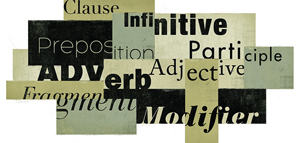By Patricia T. O’Conner and Stewart Kellarman
Smithsonian magazine
 You’ve probably heard the old story about the pedant who dared to tinker with Winston Churchill’s writing because the great man had ended a sentence with a preposition. Churchill’s scribbled response: “This is the sort of English up with which I will not put.”
You’ve probably heard the old story about the pedant who dared to tinker with Winston Churchill’s writing because the great man had ended a sentence with a preposition. Churchill’s scribbled response: “This is the sort of English up with which I will not put.”
It’s a great story, but it’s a myth. And so is that so-called grammar rule about ending sentences with prepositions. If that previous sentence bugs you, by the way, you’ve bought into another myth. No, there’s nothing wrong with starting a sentence with a conjunction, either. But perhaps the biggest grammar myth of all is the infamous taboo against splitting an infinitive, as in “to boldly go.” The truth is that you can’t split an infinitive: Since “to” isn’t part of the infinitive, there’s nothing to split. Great writers—including Chaucer, Shakespeare, Donne and Wordsworth—have been inserting adverbs between “to” and infinitives since the 1200s.
Where did these phony rules originate, and why do they persist?











